Iran Press/ Iran news: Last August 30, Mikhail Gorbachev, the last leader of the former Soviet Union, died at the age of 91. A person whose name is always a reminder of the collapse of this 20th-century superpower in 1991. For this reason, he is always mentioned with respect in the West, but in his own country, he has a distorted and unpopular image. Anyway, Gorbachev was one of the most important and influential politicians of the 20th century, who ended his rule with a bitter and unpleasant fate for his goals and the former Soviet Union. It is not without reason that many experts consider Gorbachev's real death 31 years ago during the disintegration of the former Soviet Union.
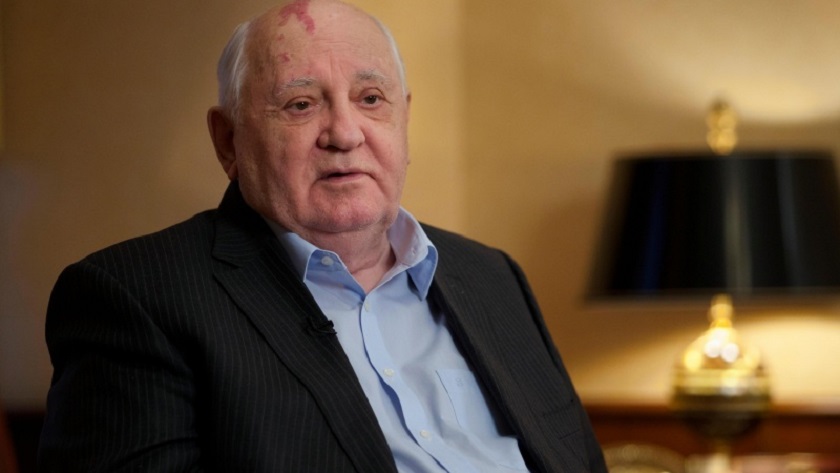 Gorbachev last leader of the Soviet Union
Gorbachev last leader of the Soviet Union
Mikhail Gorbachev was born in 1931 in a village in southwestern Russia. After finishing school, he went to Moscow and studied law at the state university of this city and graduated in 1955. Gorbachev joined the Soviet Communist Party at the age of 21 and gradually went through the stages of promotion in the country's only party until he became a member of the Central Committee, the highest body of the Communist Party, in 1979. From this time until 1985, three elderly Soviet leaders died one after the other until it was Gorbachev's turn to be appointed to the highest office of the former Soviet government at the age of 54.
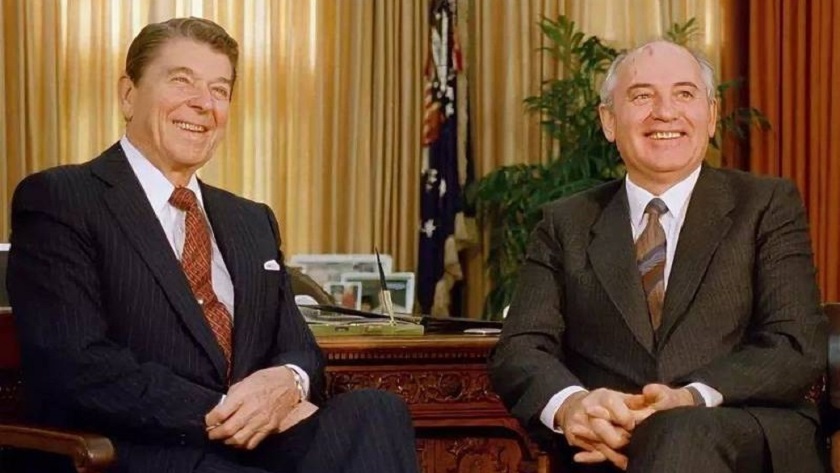 Gorbachev trusted the West in vain
Gorbachev trusted the West in vain
Gorbachev, during his activity in the Soviet Communist Party, had seen the inefficiency and corruption hindering running the country and noticed the declining trend of his country's political system. By assuming power, he tried to eliminate these weaknesses and disorders. For this reason, he proposed "Glasnost" for political reforms and "Perestroika" for reforming the economic structure. Glasnost included granting some civil and political liberties to people who had lived in an atmosphere of oppression and suffocation for nearly 70 years. Based on the Perestroika policy, extensive economic reforms were to be carried out in various fields.
Related News: Commemoration ceremony on anniversary of Imam Khomeini's historic letter to Gorbachev
In addition, the speed and extent of these political and economic transformations and the incorrect planning and implementation of many of them made Gorbachev's policies fail. The economic situation deteriorated while political freedoms led to the wrong and repressive policies of the government, the system and the Communist Party and high-ranking officials, which were always praised before, faced severe criticism from the people and the media.
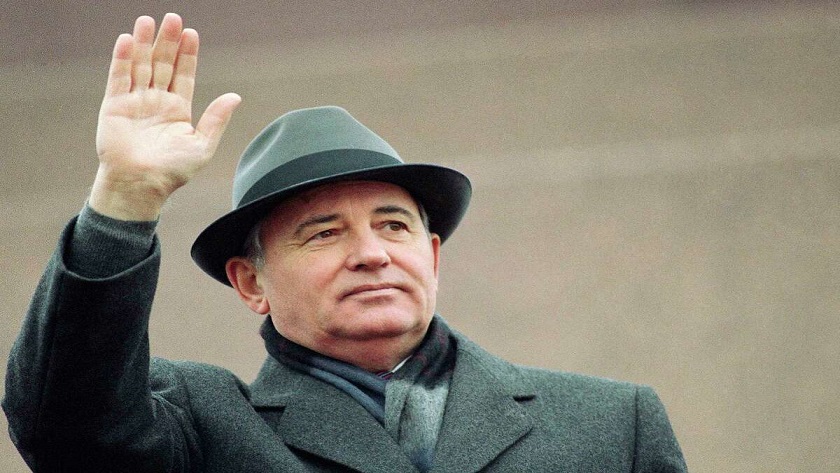 Gorbachev's plans to save Soviet Union were futile
Gorbachev's plans to save Soviet Union were futile
On the other hand, Western governments happily supported Gorbachev's reforms and wanted to expand and deepen them. They even gave him the Nobel Peace Prize in 1990. The former Soviet leader, who considered this support to be real, withdrew the Soviet army from Afghanistan after 9 years to complete his internal policies and expressing goodwill. Also, in an important move, he announced that Moscow would not interfere in the issues of the Eastern Bloc countries in Europe, and as a result, the communist parties in these countries were overthrown and Soviet control over them ended.
Related News: Last soviet president Gorbachev dead at age of 91
But this was not the end, because the Soviet republics that were part of the Unio also wanted independence. With the strengthening of these republics, as well as the weakening of the position of the president and the Soviet Communist Party, and finally, the Western governments betrayals, who were seeking the destruction of the Soviet Union from the beginning, on December 25, 1991, the superpower of the Soviet Union collapsed and dissolved.
Gorbachev did not have much political activity in the last thirty years of his life. He founded a foundation named after himself and the Russian Social Democratic Party, which did not have much success, and he was practically in political isolation.
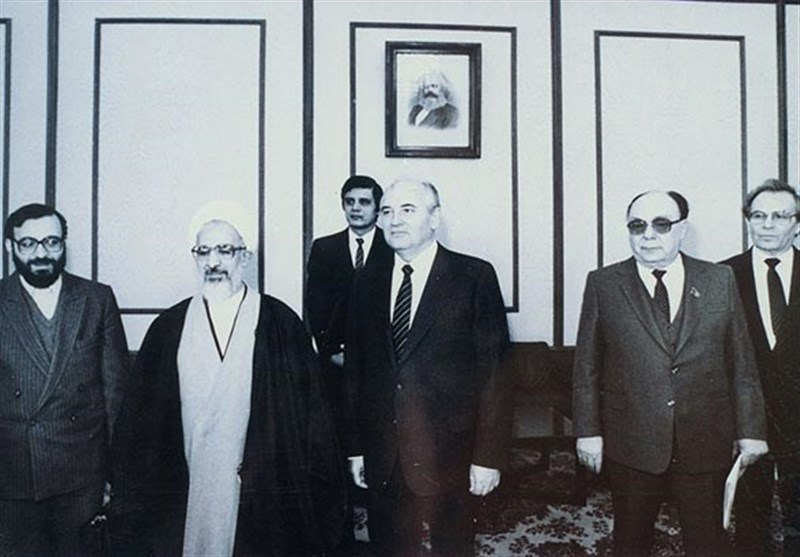 Imam Khomeini's envoy delivers a historic letter to Gorbachev
Imam Khomeini's envoy delivers a historic letter to Gorbachev
Imam Khomeini's letter
In the middle years of Mikhail Gorbachev's leadership over the Soviet Union, he received a letter from Imam Khomeini (RA), the founder of the Islamic Republic of Iran, which surprised everyone. There was an impression that the late leader of Iran wrote a letter to expand bilateral relations after the end of the Iraq war against Iran, which was carried out with the full support of the Soviet Union, and the withdrawal of the country's military from Afghanistan, which was Iran's wish. But Gorbachev was surprised to learn that Imam Khomeini, based on his divine mission, called him to God and to reform his country based on the teachings of Islam. In this letter, which was delivered to Gorbachev on January 3, 1989, Imam Khomeini pursued two goals at the same time: "Preventing the deviation of Soviet reforms in the direction that provided the interests of the West and directing it based on the Islamic worldview."
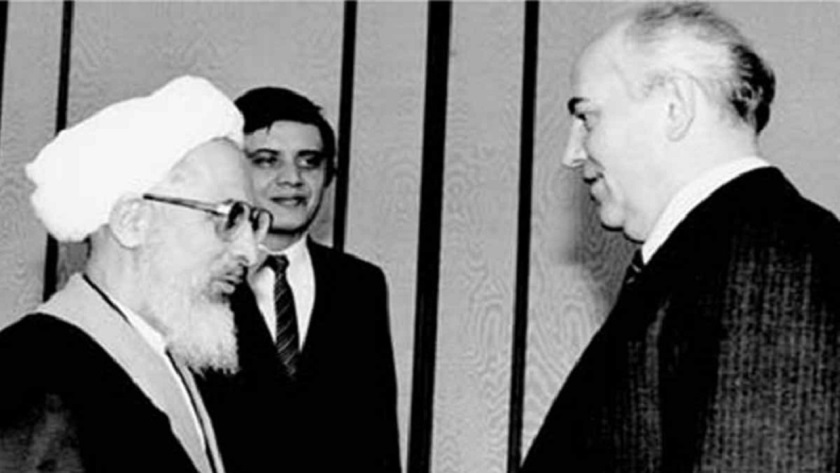 Gorbachev received Imam Khomeini's letter
Gorbachev received Imam Khomeini's letter
While praising Gorbachev's courage for reforms in the Soviet Union, Imam Khomeini told him with a rare foresight and frankness not to think about reviving communism in the Soviet Union. The letter states: "It is clear to everybody that from now on communism will only have to be found in the museums of world political history, for Marxism cannot meet any of the real needs of mankind. Marxism is a materialistic ideology and materialism cannot bring humanity out of the crisis caused by a lack of belief in spirituality, the prime affliction of the human society in the East and the West alike.
After warning Gorbachev about not trusting the West, Imam Khomeini also stated: "The main problem confronting your country is not one of private ownership, freedom and economy; your problem is the absence of true faith in God, the very problem that has dragged, or will drag, the West to vulgarism and an impasse. Your main problem is the prolonged and futile war you have waged against God, the source of existence and creation."
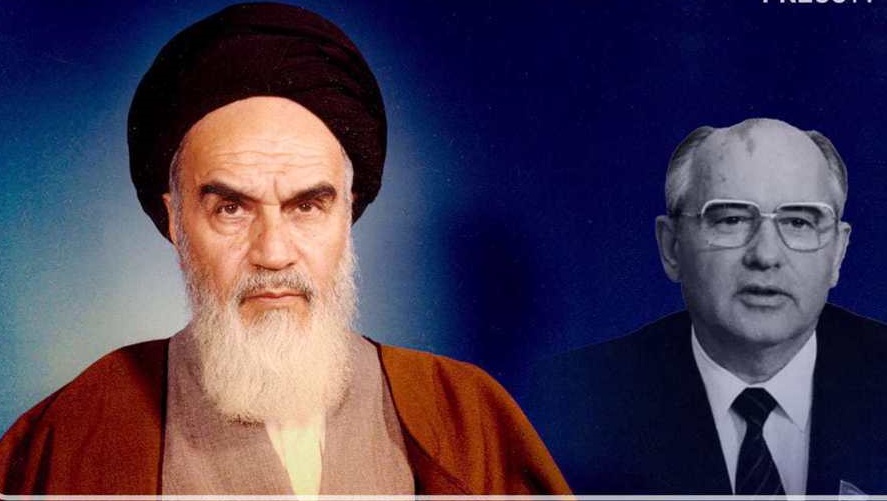 Imam Khomeini advised Gorbachev not to take the West's path
Imam Khomeini advised Gorbachev not to take the West's path
As expected, Gorbachev in Imam's reply; respectfully, but with generalities and diplomatic compliments, implicitly did not accept the Imam's invitation to turn to God and turn away from Marxism. But three years later, he grasped Imam Khomeini's foresight and acumen in understanding the conspiracies of the West and the end of Communism and the Soviet Union. For this reason, a few years later, praising Imam Khomeini and his global message, he confessed: "If we had taken Ayatollah Khomeini's prophecies and advice in that message seriously, we would certainly not have witnessed such a situation today."
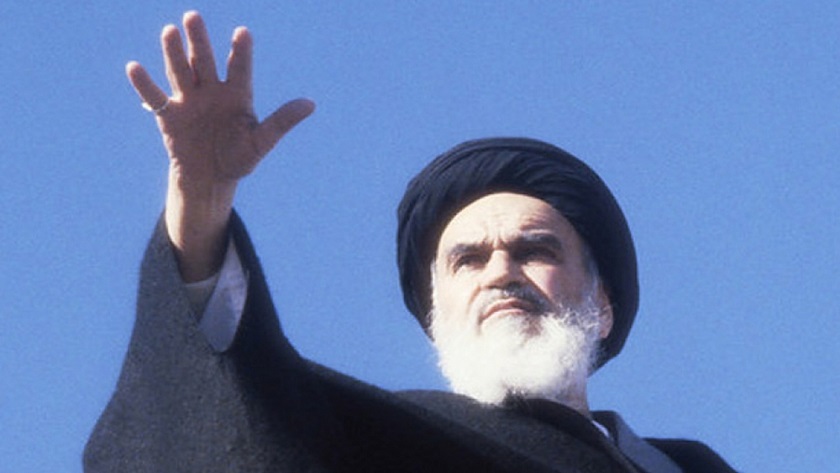 Imam Khomeini; great leader of the Islamic revolution of Iran
Imam Khomeini; great leader of the Islamic revolution of Iran
Russian thinker and theoretician Alexander Dugin, considering the letter of the late leader of the Islamic Republic of Iran to the last leader of the Soviet Union as valuable and futuristic, regretfully states that Gorbachev eventually fell into the trap of the West. He exchanged one materialistic ideology for another (materialistic) ideology and we fell into the trap of Western materialistic thinking. Ayatollah Khomeini was absolutely right to warn us and prevent us from moving in this direction. This letter of Imam Khomeini was a piece of spiritual and very important advice, Dugin noted.
However, he considers it important to pay attention to this letter for the current situation and adds: "This letter is very relevant to the challenges we are currently facing. We must return to this letter and Putin must put this letter on his agenda. This letter is not limited to its time, but an eternal one.
Read More:
World Newspaper: Putin pays last respect to Gorbachev, will miss funeral
Ashkan Salehian

